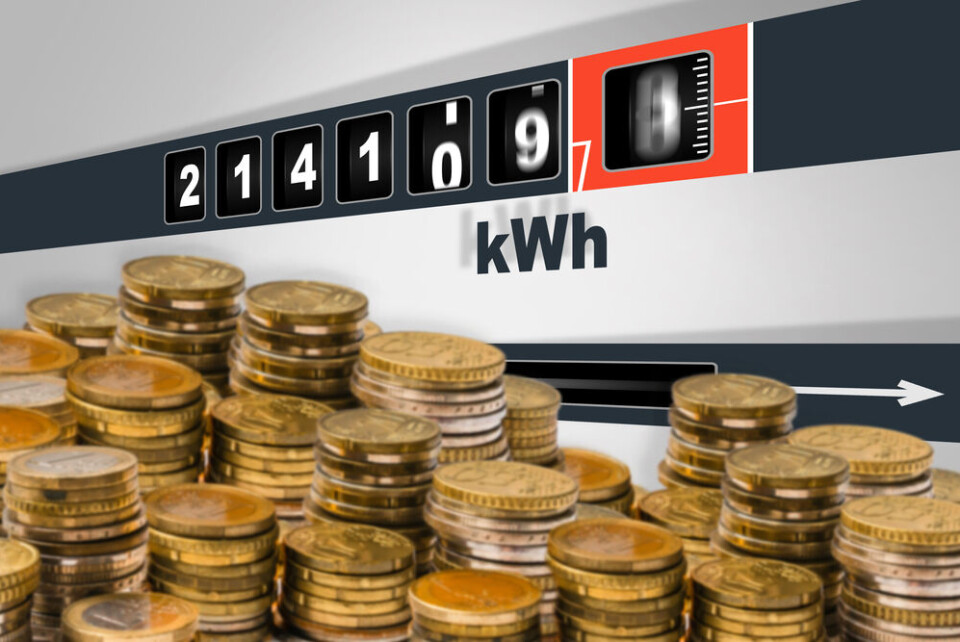-
Many Société Générale customers to be charged additional fees from April
There is some good news for international banking and instant transfers, however
-
Why gas prices in France are rising in April - and by how much
It comes after six consecutive monthly rises. Try these tips to reduce your bills
-
New notaire data suggests easing of Paris property crisis
Property experts have talked of ‘easing pressure’ and ‘breathing space’ after a four-year slump
French MP calls on local authorities to stop paying electricity bills
The head of the French communist party says drastic action is needed as towns struggle to pay for swimming pools, theatres, schools and other public facilities

French MP Fabien Roussel, who is the secretary general of the French communist party (PCF), has called on local authorities and businesses to not pay their electricity bills as they are “increasing in unacceptable proportions".
He described it as “a call for Republican resistance” in an interview with French newspaper Le Parisien.
France has implemented a system of price rise caps for households which the government is calling a bouclier tarifaire. But this protection is not afforded to local authorities or private businesses.
"What is at stake is the closure of our swimming pools, our theatres, the heating of our schools or our old people's homes,” Mr Roussel said.
“We'll see if these private companies dare to cut the electricity.”
Last week, private leisure centre company Vert Marine announced it would be closing around 30 public swimming pools because of soaring energy costs.
Read more: ‘Who’d pay €20?’: Why 29 public swimming pools in France have closed
Mr Roussel is not the first to call for drastic action to draw attention to local authorities’ struggle with rising electricity prices.
Jean-Pierre Bosino, the communist mayor of Montataire, a town of 13,600 inhabitants near Creil (Oise), threatened at the end of August to "stop paying" for his town's electricity if nothing was done to help with the bills.
Meanwhile Ian Brossat, spokesman for the PCF, told Sud Radio that “we find ourselves in a completely crazy situation where mayors will have to choose between extracurricular activities for children, swimming pools or paying these bills”.
For Fabien Roussel, the government should pay local authorities the difference between the regulated electricity price and the one that they actually get charged.
He also said that France should quit the European energy market and “invest massively in our nuclear power stations that we have abandoned”.
Currently, 28 of France’s 56 nuclear reactors are offline due to issues with corrosion.
French President Emmanuel Macron announced last week that he supports a European Union-wide mécanisme de contribution aimed at electricity producers as part of measures against soaring energy prices.
In the EU, electricity market prices are tied to gas prices, which at the moment are extremely high after Russia’s invasion of Ukraine. On top of this, Russian gas giant Gazprom announced on September 2 that it would keep the Nord Stream gas pipeline shut – which it closed on the pretext of maintenance.
Because of this, market electricity prices are extremely high while production costs remain the same, leading to huge profits for the producers. The prices are essentially based on market speculation.
When Mr Macron spoke of the mécanisme de contribution, he did not mean a tax specifically on these profits, but rather a system to channel the money made from these artificially high electricity prices back to consumers on an EU level, via individual member states’ governments. The amount will vary depending on the country’s energy mix.
This contribution that Mr Macron is talking about could be based on the company’s turnover or other factors, not necessarily just on its profits.
Read more: Explainer: Is Macron planning a windfall tax on European energy firms?
Related articles
‘Reduce energy consumption to avoid rationing in France’, says Macron
French ski stations under pressure as energy contracts up for renewal
Rising energy bills: France to keep price cap in 2023
























